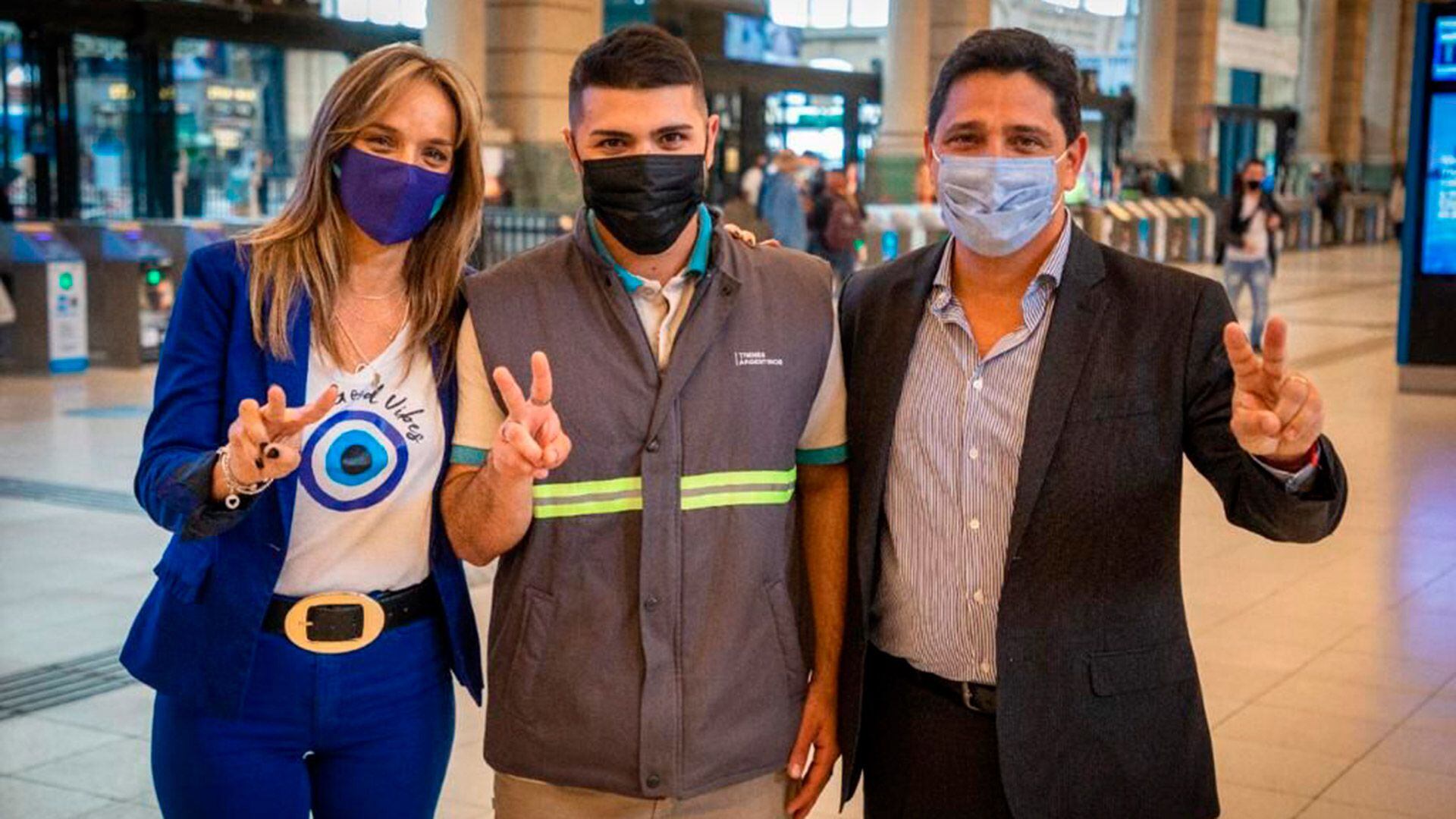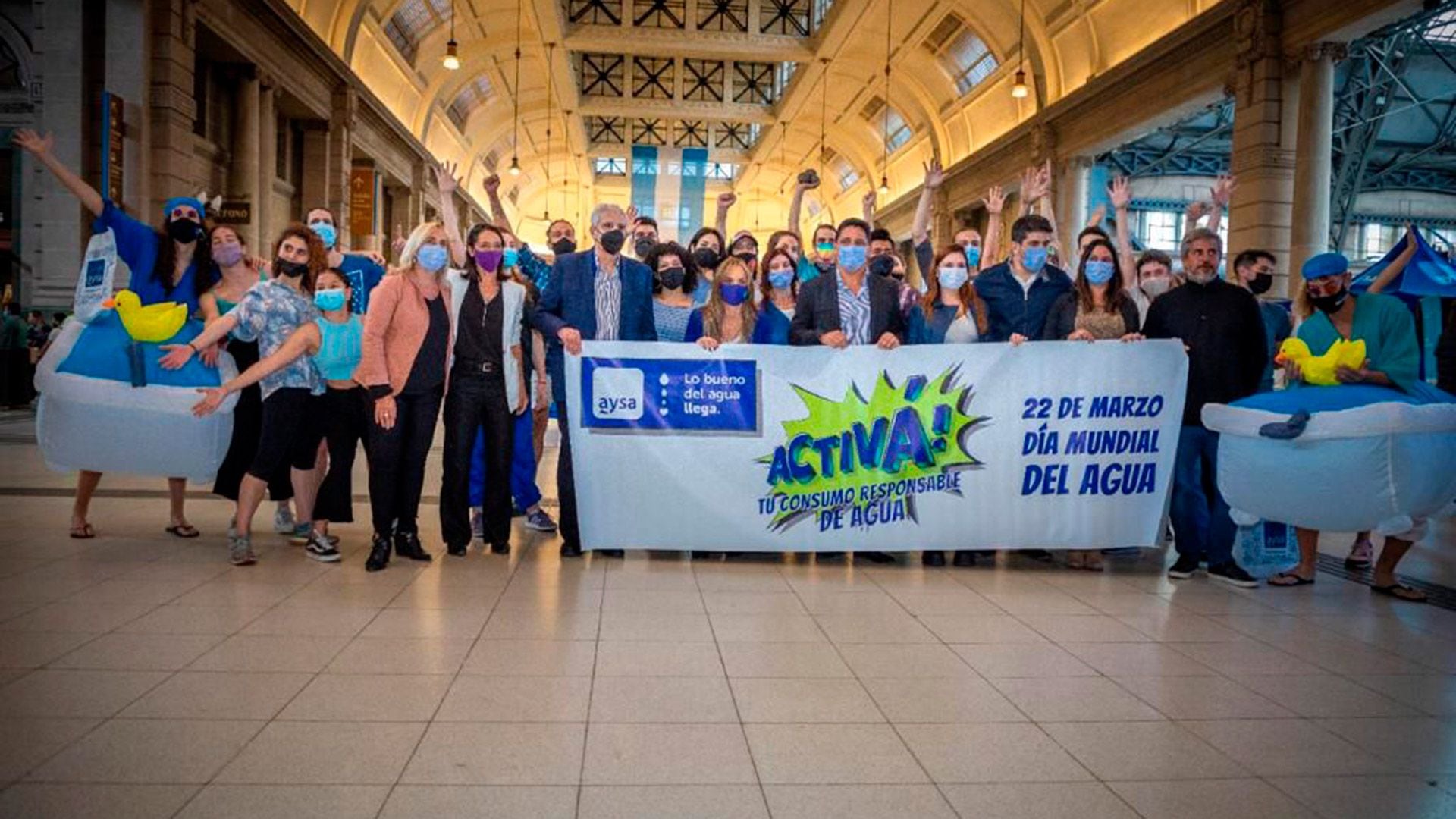
In commemoration of World Water Day, AySA carried out a campaign at the Retiro train station, at the Mitre Line terminal, which consisted of a collective dance aimed at raising public awareness about the care of this resource. There were 25 artists on stage and it was performed at peak time in the afternoon.
As explained by the company presided over by Malena Galmarini, the objective is “to achieve changes in the consumption habits of its users by paying attention to carrying out small daily actions where large amounts of drinking water are wasted”.
This artistic intervention was repeated at the Constitución Station of the Roca line, and on Wednesday it will be held at Tigre Station, on the Mitre line, during the return home.
At the opening of this event, Malena Galmarini said: “It is a beautiful action that aims to activate responsible consumption by everyone, everyone and everyone. We are in the terminals where most people pass by, because that is what we want on World Water Day: to teach and learn at the same time the importance of this essential element for life. And besides, this coincides with the 16th anniversary of this company, which is finally, after so long, today fully working to bring more and more water and sewers to more people.”

For his part, José Luis Lingeri, Secretary General of the Greater Buenos Aires Union of Sanitary Works Workers (SGBATOS) said: “For us sanitarians it is a very special date considering that water is a human and universal right, a right to life. Therefore, in those sectors that still lack this vital service today, the company has put all its efforts in these almost two years with a heavy investment in expansion works, pipe changes, to benefit and improve the quality of users. Much remains to be done. That is why we redouble our efforts to ensure that each of the Argentine households in the coming years can access this vital element.”
Along these lines, Martín Marinucci, president of Trenes Argentinos, added: “It is a joy to receive the president of AySA on this day. To bring to our users the awareness of something so important that it is to take care of water, to understand that the UN poses an important message worldwide and that today we are sharing fun activities, watching a dance show, being able to talk with each passenger and passenger about this thing of continuing to take care of this important asset for life and health is very important.”

In parallel to these interventions, the screens and totems of the terminals can read tips for responsible use of the resource and there is a space with hydration stations and games where messages will be reinforced.
The World Health Organization (WHO) estimates that between 50 and 100 liters of water are needed per day to cover basic hygiene, housework and health care needs. However, in the metropolitan area of Buenos Aires, where much of the population has access to water, per capita consumption is much higher.
Given this, AySa recalled some tips to keep in mind and avoid waste: close the faucet well so that it does not leak; repair leaks, control leakage of taps, bathroom tanks and water tanks; bathe quickly and close the tap when lathering; take better care of the water when there are power outages; and use alone a bucket to wash the sidewalk.

“We believe that it is essential at this time to understand that every drop counts, the importance of water is essential, that there are things that are essential for the life of human beings, but also for the life of our planet. That is why I want to thank Martín Marinucci and the Minister of Transport, Alexis Guerrera, deeply for allowing us to be in these places where these areas can be generated where passengers come and have a minute of reflection through the game. It's essential,” Galmarini concluded.
The presentation of this event at Terminal Retiro was also attended by Mayra Mariani, director of Institutional Relations at AySA, and on behalf of the Argentine Train team, Rodrígo Álvarez, its vice president; Iván Kildoff, manager of the Mitre line; Jimena Bondaruk, head of Gender and Diversity; and Valeria Fernández, coordinator of the Gender and Diversity Policy Unit.
Últimas Noticias
Debanhi Escobar: they secured the motel where she was found lifeless in a cistern

The oldest person in the world died at the age of 119

Macabre find in CDMX: they left a body bagged and tied in a taxi
The eagles of America will face Manchester City in a duel of legends. Here are the details

Why is it good to bring dogs out to know the world when they are puppies




